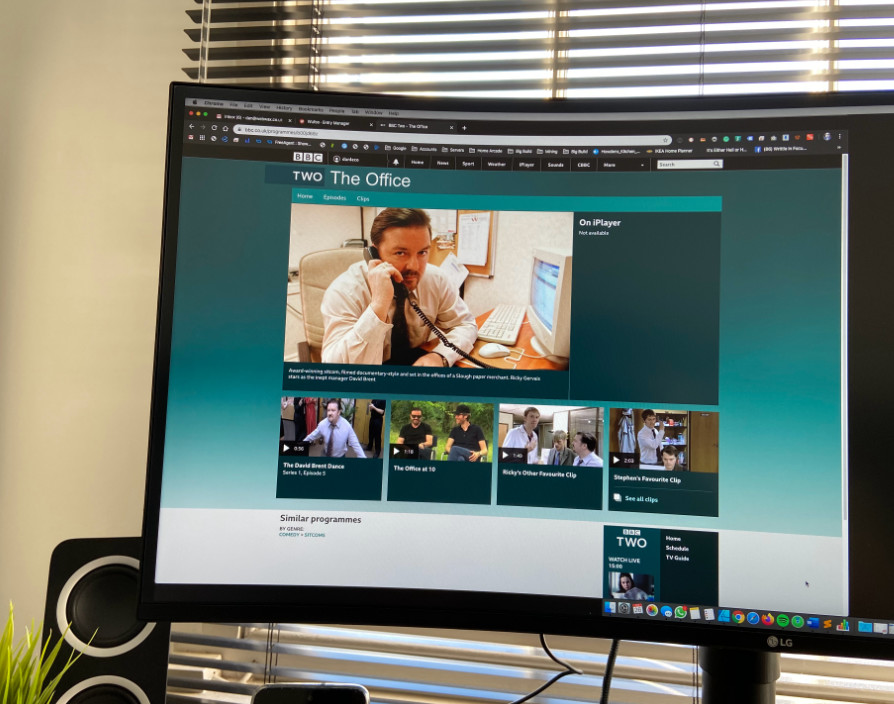Did you hear the joke about the boss. He was asked: “How many people work for you?” He replied: “About half of them. And, that’s on a good day!” A terrible joke. But, like most humour, it contains a grain of truth. Employee surveys demonstrate the boss in this joke should probably be even less optimistic. Gallup polls consistently report only 3 in 10 employees feel engaged and inspired by their job. This means, in the average office, 70% of people are walking through their days like a zombie. Dead from the neck up. These people love Fridays so much, even Thursdays have taken on a special glow. Let’s face it, you can’t blame them. Most workplaces are boring, uninspiring and unwelcoming to laughs. Did you know, when you’re a baby you giggle on average 400 times a day? When you grow up this drops to just 15.[1] The sad truth is the way we currently run our organisations is a systemic waste of human potential. Part of the problem: people are forced to sustain themselves through long working days on a starvation diet of laughter.
Some smart leaders are now sensing the opportunity to cheer people up. Big companies such as Nissan, Nike, Motorola and McDonalds[2] have been sending their senior execs to comedy clubs in recent years to sharpen their communication and lateral thinking skills. I’m an advocate of this kind of experiential learning. In my work with organisations at London Business School and elsewhere, I’ve staged similar experiences with artists and jazz musicians. More exciting though, is what happens when people return to the office. How can they unlock their potential for leadership using a dash of creativity?
In my latest book The Human Edge, I argue the most agile and innovative firms will be those that liberate their people to be more curious, creative and collaborative. This begins with being more human at work. There’s a growing body of research which shows humour plays a key role in unlocking these human superpowers. A more light-hearted environment leads to people being more healthy, less stressed and happier.
[3] As a result, they’re more productive, creative and collaborative.
It starts with leadership. Believe it or not, funny bosses are perceived as being more effective. Humour is proven to encourage people to listen, to understand a leader’s message – and to learn from it.[4] One study found a good sense of humour is considered to be one of the most desirable traits in any leader.[5] It’s been shown, that those bosses that are seen to be more influential, are the ones that joke more frequently. One analysis found outstanding leaders use humour more than twice as often as those perceived to be average leaders. Take Steve Jobs. The late Apple CEO’s famous product demonstrations had a laugh count which outperformed most professional comedians. The anthropologist Edward Hall noted: “If you can learn the humour of a people and really control it, you know that you are also in control of nearly everything else.”[6]
Being more lighted-hearted might even get you promoted. Eight out of ten senior executives report, when they see a person displaying a good sense of humour, they feel he or she is doing a better job. The same survey found 90% of executives believe a sense of humour is important for their career advancement. Researchers even found a direct correlation between the use of humour and the magnitude of a boss’ pay packet.
Of course, leaders should be careful not to make jokes about people who are in fear of answering back. Any quip, however innocent, is a slight subversion or comment on reality, so it will always contain a little risk. The idea of humour in the workplace is not helped by Ricky Gervais’ comic invention from the hit BBC mockumentary The Office. The boss David Brent is desperate to be funny and loved by his staff. However, it never works as Brent simply doesn’t have the necessary empathy or social skill. It’s excruciating because he’s unable to sense when humour is appropriate and when it isn’t. The result is this self-styled ‘chilled out entertainer’ is only ever unintentionally hilarious. Not a great look for any would-be leader. This is why I advise managers to first take themselves a little less seriously. This sends a powerful signal that people can relax.
However, used with a lighter touch, the business benefits of wit outweigh the risks. Humour makes collaboration more likely and more productive because it forms a powerful
social glue between humans.[7] Prompting someone to smile is proven to deepen rapport and intimacy. It builds trust which is vital for cooperation.[8] Laughing bonds us together and strengthens our uniquely-human connection, which is why hilarity is contagious. Cultural anthropologists believe the very first laughter occurred just after danger had passed and people felt safe again.[9][10]It’s the same reason why it’s not possible to tickle yourself. Being ticklish is a social mechanism.[11]
Hilarity can also lead to the life-blood of innovation: new ideas. When you’re having fun your mind and body relaxes while your imagination fires up. Researchers who study laughter (I kid you not, they’re called Gelotologists) have taken MRI scans which show joking and creativity tickle the same parts of your brain.[12] Comedy is a very complex cognitive function which lights up areas across the brain – just like creativity. Your left brain hemisphere “sets up” the joke, while the right one helps you to “get it”.[13] Funny people and situations help you to see the world differently by defying customary expectations.
Having fun makes brainstorming way more effective. Researchers pitted product designers against improv comedians. They were surprised to find the comedians generated 20 percent more ideas than the professional designers. In addition, the ideas they produced were rated as 25 percent more creative. Intriguingly, for the rest of us, the study also found many of the warm up games used in improv comedy could be effectively adapted to business idea generation, because they strongly promote associative thinking (when two ideas come together). When this theory was tested it boosted idea output by a sizeable 37 percent.[14] Teams in the global design consultancy IDEO, warm up for creative work by first conducting a “bad ideas” brainstorm. The objective is to list the most bizarre and unworkable answers for the challenge they’re looking at. The most ridiculous solutions provoke a few guffaws which gets the chemistry bubbling.
The late Robin Williams once said “Creativity is like having sex in a wind tunnel.”[15] Similarly, using humour has its risks. Sometimes jokes fall flat. But it’s worth the risk.[16] Even an attempt at humour exposes your vulnerability and authenticity. It shows you understand, while work may be serious, life can be absurd. It’s not whether or not you’re hilariously funny, it’s about being open to the possibility that work might be fun. Ironically, people who take themselves too seriously often unintentionally become the butt of the joke anyway.[17] Just ask David Brent.
[1] https://hbr.org/2014/05/leading-with-humor
[2] Source: The Economist
[5] https://www.forbes.com/sites/jacquelynsmith/2013/05/03/10-reasons-why-humor-is-a-key-to-success-at-work/#28ded47e5c90
[6] https://hbr.org/2014/05/leading-with-humor
[7] https://www.humorthatworks.com/benefits/30-benefits-of-humor-at-work/
[8] https://www.humorthatworks.com/benefits/30-benefits-of-humor-at-work/
[9] https://www.psychologytoday.com/us/blog/the-tao-innovation/201406/the-power-humor-in-ideation-and-creativity
[10] https://www.fastcompany.com/3009489/why-humor-makes-you-more-creative
[11]The Healthy Mind Platter by David Rock, Daniel J. Siegel, Steven A.Y. Poelmans and Jessica Payne, NeuroLeadershipjournal, issue FOUR
[12] https://www.laughterremedy.com/article_pdfs/Creativity.pdf
[13] https://www.inc.com/yoram-solomon/humor-and-sarcasm-can-make-you-creative-science-says.html
[14] https://www.psychologytoday.com/us/blog/the-tao-innovation/201406/the-power-humor-in-ideation-and-creativity
[15] https://www.laughterremedy.com/article_pdfs/Creativity.pdf
[17] https://www.forbes.com/sites/jacquelynsmith/2013/05/03/10-reasons-why-humor-is-a-key-to-success-at-work/#28ded47e5c90
Share via:


















































